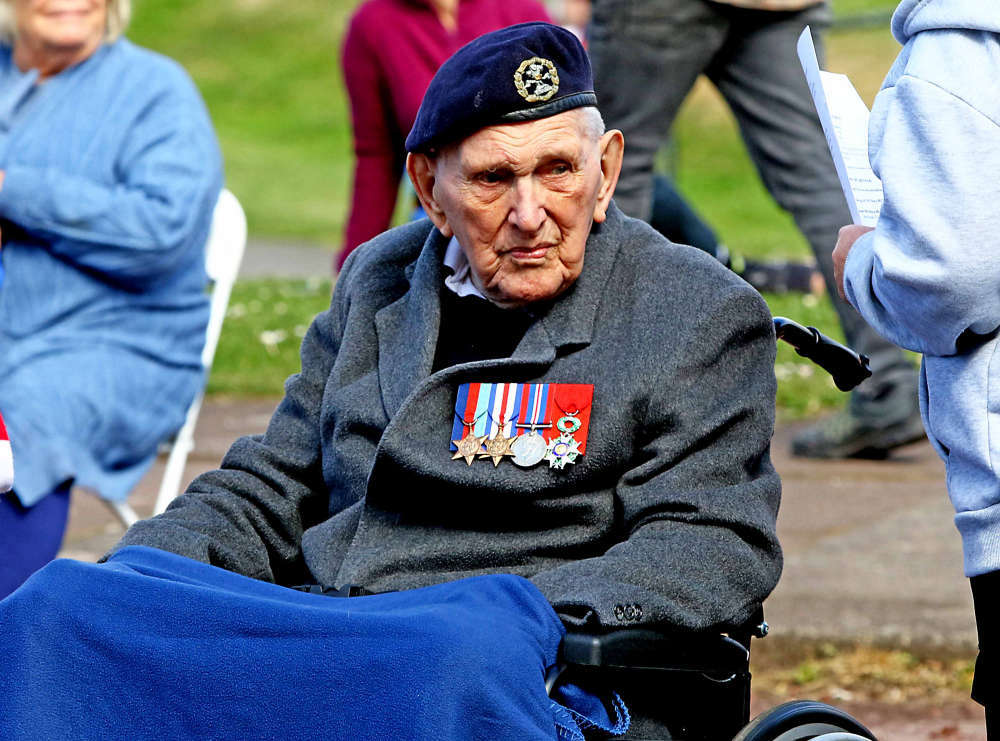
A D-Day hero from Morecambe who helped to liberate Europe during the Second World War is set to celebrate his 100th birthday.
Geoff Hogg, who was part of the largest seaborne invasion in history during World War Two, turns 100 on Sunday.
The Sands Care Home, where Mr Hogg lives, will host a party attended by Forces veterans and serving personnel, friends and family.
Geoff was awarded the 1939-45 Star and the France-German Star, and the Legion d'Honneur from the French government.
After landing on the beach at Normandy in July 1944, he spent months trekking through Europe, evading death on several occasions as the Allied Forces liberated Nazi-occupied towns and villages.
Geoff was injured by a 'Moaning Minnie' rocket launched by a German soldier - who he later met in an amazing concidence while talking to Prisoners of War.
Robert Geoffrey Hogg was born in Westmorland on June 15 1925 to Ernest E Hogg and Margaret A Fothergill who had married in 1922. Ernest was born in Morecambe.
They lived on King's Crescent, Heysham, with Geoff's older sister Kathleen. Geoff was an attendant at the Winter Gardens as a teenager, and later worked as an assistant in a fruit shop.
He enlisted on July 15 1943 and on April 1 1944 was transferred to the 6th Battalion of the Border Regiment, taking part in training for D-Day with them.
Geoff landed on D-Day at 7.30am at Jig Green on Gold beach, and ended up spending his 19th birthday on the beach at Normandy.
After the 6th Border Regiment was disbanded, Geoff was seconded to the 1st Battalion KSOB.
On August 6 they successfully occupied Montisanger without opposition. However, later that day, two companies attempted another attack on positions south of a river near Pissot. They reached their first objective and pushed on but against heavy opposition, with many men killed, wounded or missing.
On the following day, patrols were sent out and reported enemy still occupying the position of the previous day while a later patrol reported no enemy in a wood nearby.
On this day, Geoff was out on a reconnaissance mission in a platoon with Lt. Alan McQueen Don.
Lt. Don said to Geoff: "You will have to help me through this as I’ve had no infantry training."
Geoff stayed very close to him after that.
They came across a gap in the hedge and Lt Don was about to cross the gap but Geoff held him back saying there could be snipers about - but Lt Don said “I will just have a quick look."
As soon as he did a sniper shot him through the head and he fell backwards on to Geoff.
They carried his body to a shallow ditch and wanted to make a cross for him with a rifle - but being an officer he only had a sidearm which they left with him.
Lt. Don has no known grave and was never found.
He is remembered at Bayeux War Cemetery.
Below, Geoff Hogg during his years of service.
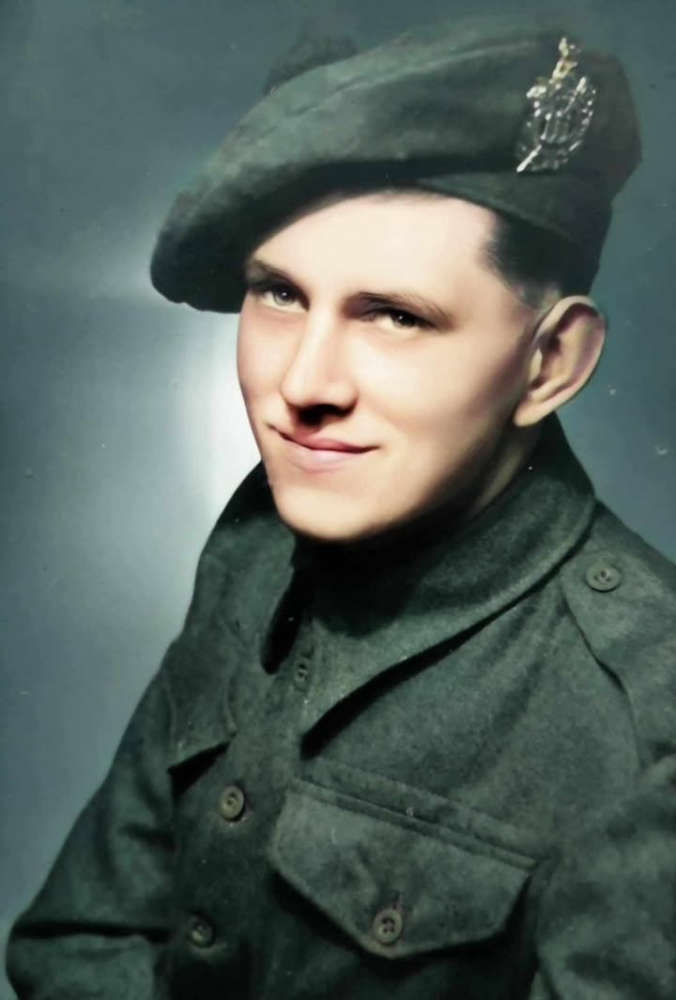
In September, the Battalion entered the Netherlands from Belgium at Budel, where the troops were given a great welcome by the inhabitants.
They played a football match on St Hubert’s football field against the six KOSB, which they lost 4-1.
In October the Battalion helped to clear woods to the west and south of Overloon. During this action three men were killed and 12 were wounded.
The following day the Battalion continued south through more woods, but that afternoon they were ordered to take over the positions of the 4 KSLI east of Overloon in the Smakt area. During the takeover one man was killed and three wounded by Nebelwerfers (Moaning Minnies).
They remained in this position until November 4. From here, they patrolled the area west of the railway line and observed movements of Germans on the east side and targeted them. They were often heavily shelled and mortared but also made good use of the Artillery to retaliate.
Mines on the railway crossing points prevented attempts to cross the railway. On one occasion, on October 22, when a platoon did cross to see if the enemy had withdrawn from the houses in Smakt, they were surprised by enemy machine guns concealed in the houses.
One officer and 19 other ranks were presumed killed or taken prisoner with only five being able to escape. In this period 33 men were wounded, 10 were killed and 21 were missing.
On November 14 they moved back into positions west of the railway line in the area of Smakt. The take over began before first light when they took over exposed forward positions and standing patrols thought to be under enemy observation.
The take over was completed, but Corporal John McGregor Drummond was killed by a sniper.
Geoff was in a slit trench with Cpl Drummond whom he had known for some time before this incident.
Cpl Drummond told Geoff to bail out the water in the trench while he got some straw from a nearby barn to put in the bottom of their trench, making it more comfortable. He thought he would be OK as there had been no reports of enemy activity in the area.
He saw Cpl Drummond leave the barn laden with straw under both arms – then fall after hearing rifle shots.
Geoff knew there was a sniper about and immediately ran for help zig zagging any snipers that may be out there as he had been trained to do, then dived into bramble bushes cutting himself all over.
Smoke was sent into the area where Drummond had fallen but when the stretcher bearers went in, the sniper (who they never found) started firing through the smoke at them without success.
Medics looked after Geoff and gave him some brandy.
He asked how Drummond was and was told not to worry about him and that he was OK.
It was only in 2014 when Geoff’s son did some research on the history of the KOSB that he found that Cpl Drummond had died that day and is buried in Overloon Cemetery.
Following the incident in which Cpl Drummond was killed, Geoff moved on with his unit so was based between Grubbenvorst and Houthuizen on the night of January 11, 1945.
He went on patrol in the snow wearing white camouflage fatigues with a small group looking for Germans around the river area, returning without incident in the early morning to a deserted farmhouse where they were billeted.
Geoff left his pals saying he needed the loo.
As he crossed the cobbled farmyard a Moaning Minnie was fired from across the River Meuse and landed very close to him in the courtyard, blowing him up in the air so that he landed 25 yards away, unconscious.
When he came to, his white fatigues were now red as he'd suffered severe shrapnel wounds to his thigh, foot and arm.
He was rushed to an airfield close by where a Dakota was waiting to take off.
Geoff was loaded with other wounded on to the plane when a jeep came screeching up, and they were told: "Stop don’t take off as there are places at Brussels General Hospital.”
So, he was driven there and spent a long time in convalescence where for three months he had to have his wounds opened up to pull fragments of shrapnel and uniform from inside by tweezers.
Geoff was discharged from hospital on April 30 but then spent some time in various Reinforcement Holding Units and Transit Camps, still in North West Europe.
He heard that they needed cooks in the Army Catering Corps so he took a cook’s course after the war ended.
Geoff worked in camps at Ostend and Leuven, ending up at Oldenburg in Germany where he remained until he returned to England in 1947, having been promoted to Acting Corporal in April that year.
He told his family that he was in charge of the catering for the Allied troops that were there.
Some Prisoners of War were given jobs within the kitchens. Geoff therefore always wore a sidearm throughout this period.
He used to barter with prisoners, exchanging coffee for a ship in a bottle – SMS Oldenburg – which his son still has.
While talking to a section of German prisoners of war, he told the story about being blown up by a Moaning Minnie at the farmhouse near Venray.
A POW spoke up and said to him: "That was me - we were testing a new version and I was told to fire a round off!”
Geoff couldn't believe it!
He was transferred to the reserves on November 4 1947.
Geoff married Cicely P Riley in Lancaster in 1948. They had two sons, Adrian in 1949 and Malcolm in 1951.
Sources
Geoff Hogg and his son Malcolm Hogg
Geoff’s Service Record and associated papers
1 KOSB War Diaries
FindMyPast – Genealogical records


 Lancaster youth charity launches 10 Challenges campaign
Lancaster youth charity launches 10 Challenges campaign
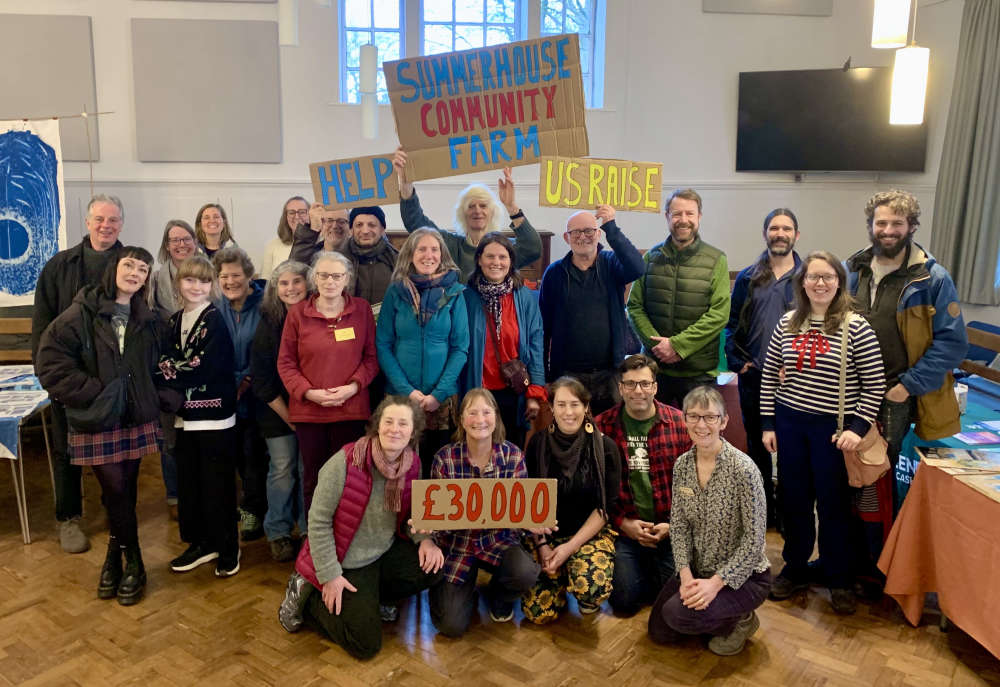 £30k campaign launched for new Lancaster community farm
£30k campaign launched for new Lancaster community farm
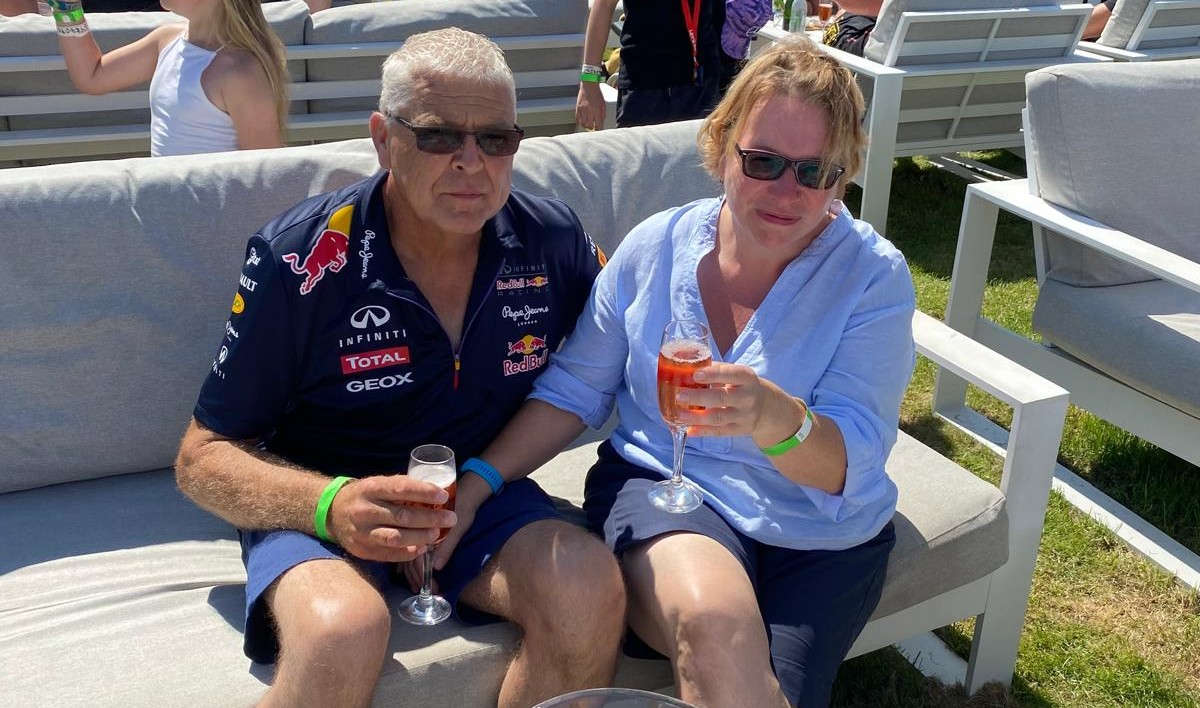 Carnforth chiropodist honours her late husband with clinic fundraiser
Carnforth chiropodist honours her late husband with clinic fundraiser
 Lancaster City Council agrees 2.99 per cent rise in Council tax share
Lancaster City Council agrees 2.99 per cent rise in Council tax share
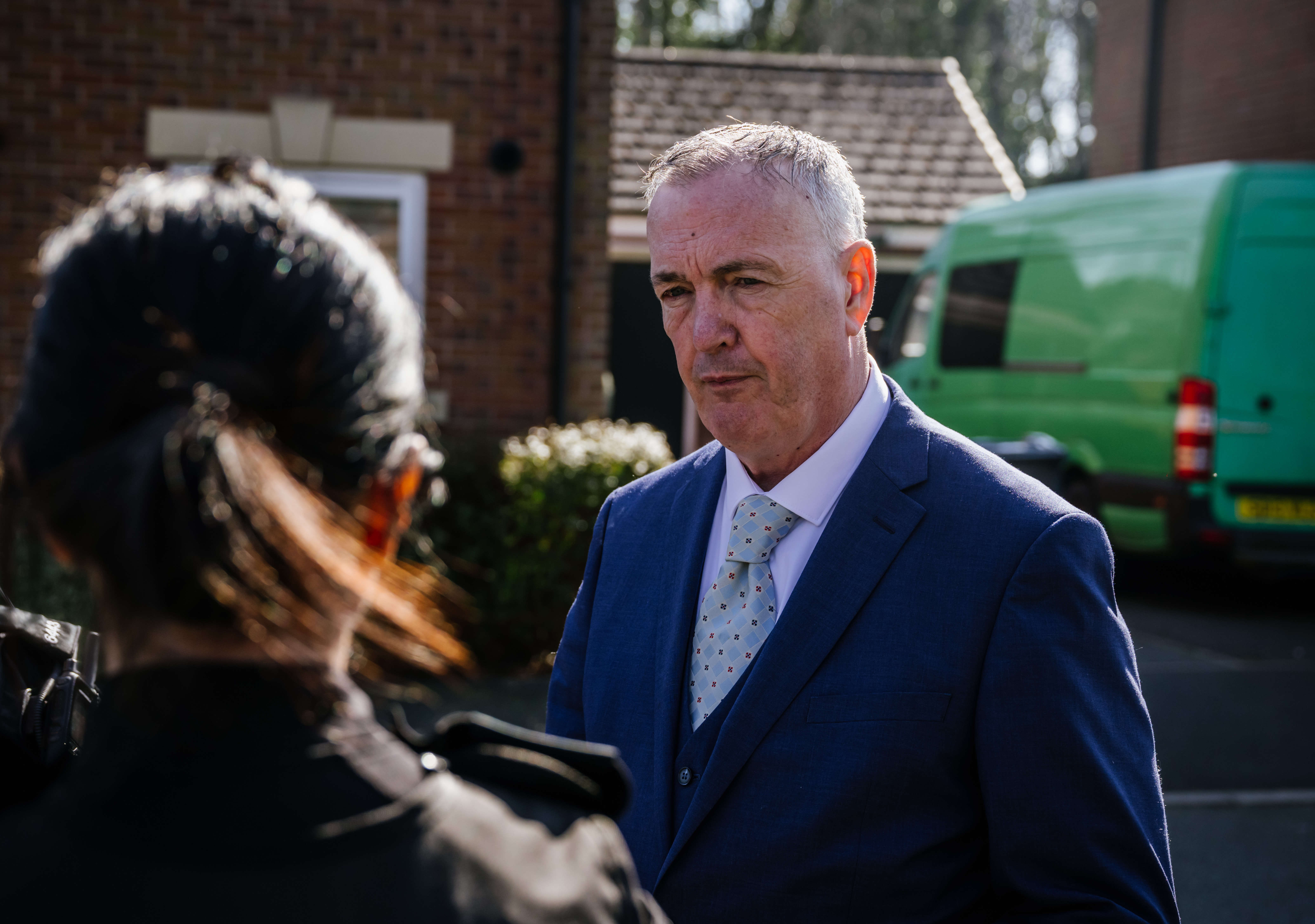 Lancashire Police’s share of Council tax to rise by 5.4 per cent
Lancashire Police’s share of Council tax to rise by 5.4 per cent
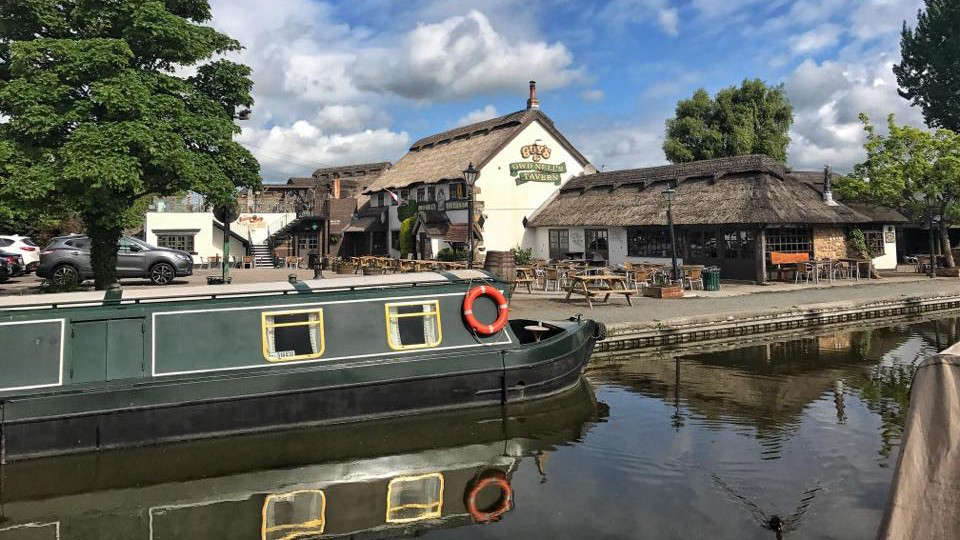 Guys Thatched Hamlet closes suddenly after 46 years
Guys Thatched Hamlet closes suddenly after 46 years
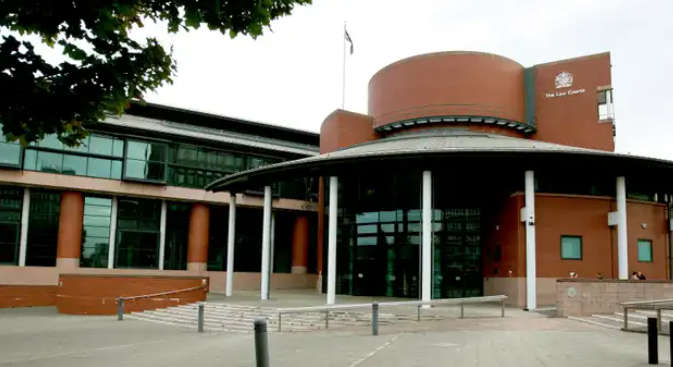 Teenager spared jail for causing death of newborn child in Morecambe
Teenager spared jail for causing death of newborn child in Morecambe
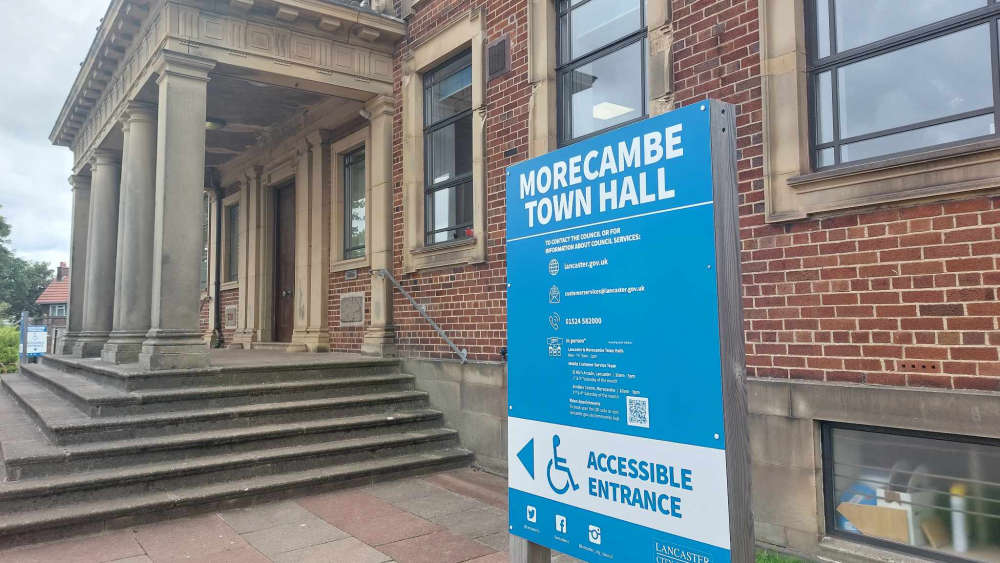 Morecambe Town Council agrees budget and 2.46 per cent rise in Council tax share
Morecambe Town Council agrees budget and 2.46 per cent rise in Council tax share
 Builders of new Lancaster housing development offer £2k cash pot to community groups
Builders of new Lancaster housing development offer £2k cash pot to community groups
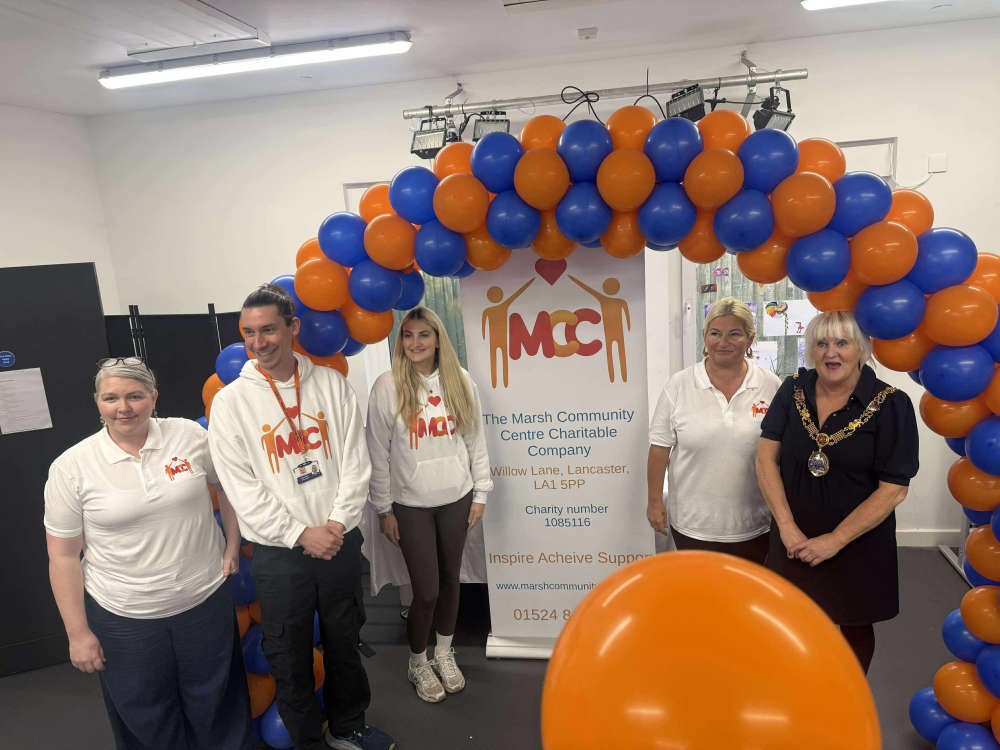 Lancaster centre welcomes mayor for opening of new community kitchen
Lancaster centre welcomes mayor for opening of new community kitchen
 Lancaster shop to close as high street gaming chain faces administration
Lancaster shop to close as high street gaming chain faces administration
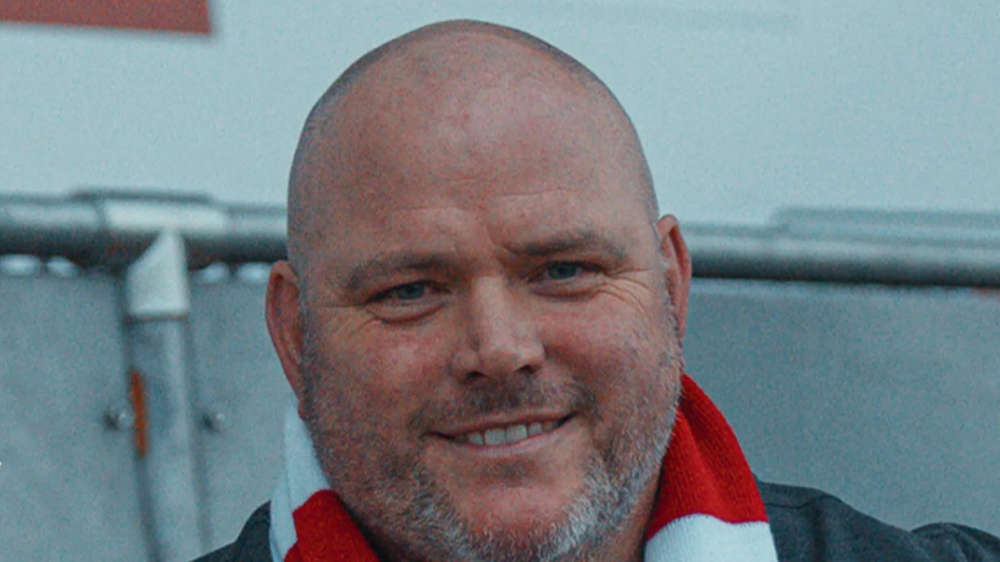 Jim Bentley returns for second spell as Morecambe FC manager
Jim Bentley returns for second spell as Morecambe FC manager
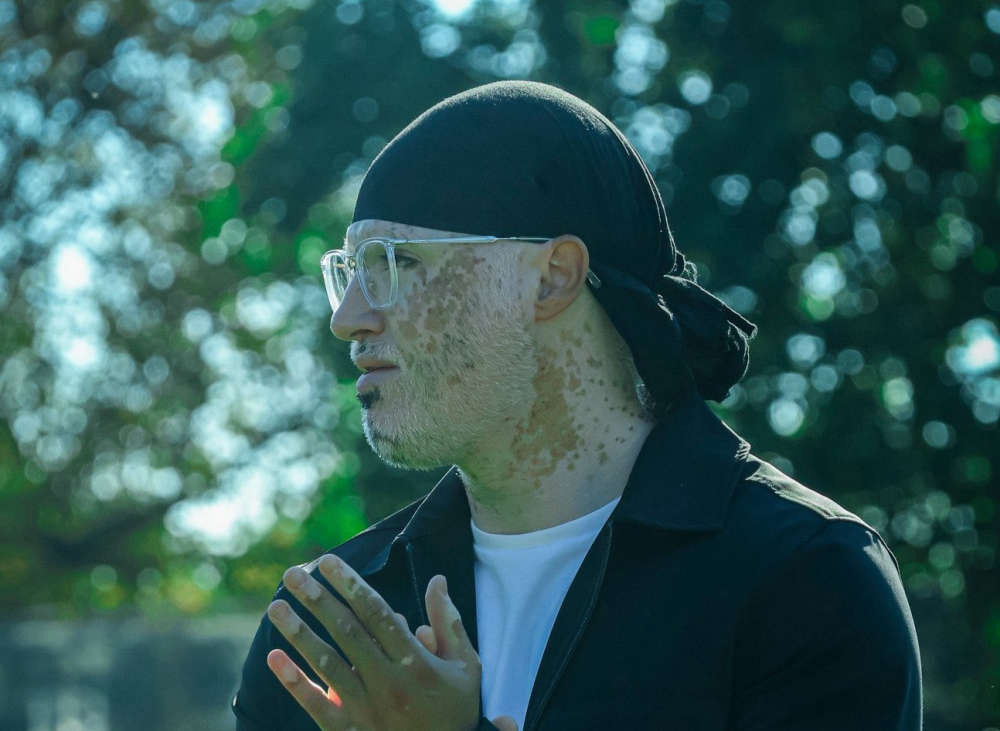 Ashvir Singh Johal’s reign as Morecambe manager comes to an end
Ashvir Singh Johal’s reign as Morecambe manager comes to an end
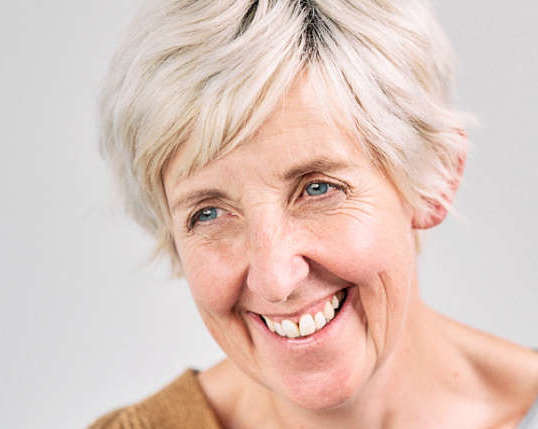 Lancaster writer's ghost story of Morecambe to be voiced by acting legend on Radio 4
Lancaster writer's ghost story of Morecambe to be voiced by acting legend on Radio 4
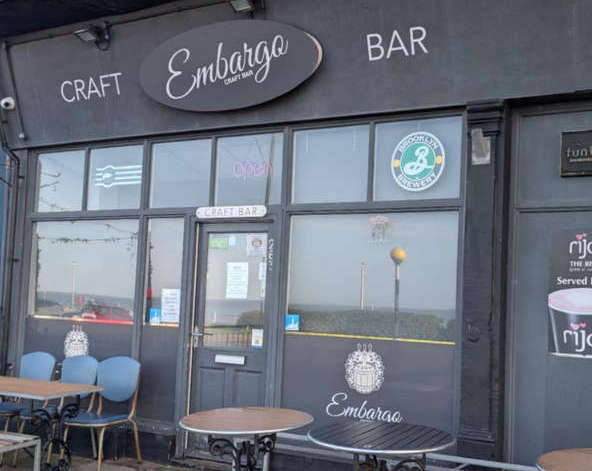 Change of name announced for popular Morecambe bar
Change of name announced for popular Morecambe bar
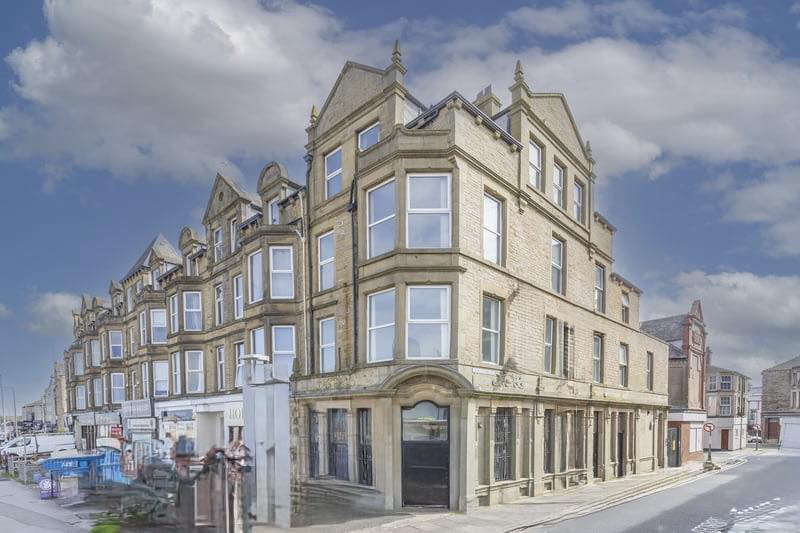 Opening announced for new Morecambe bistro inside former post office
Opening announced for new Morecambe bistro inside former post office
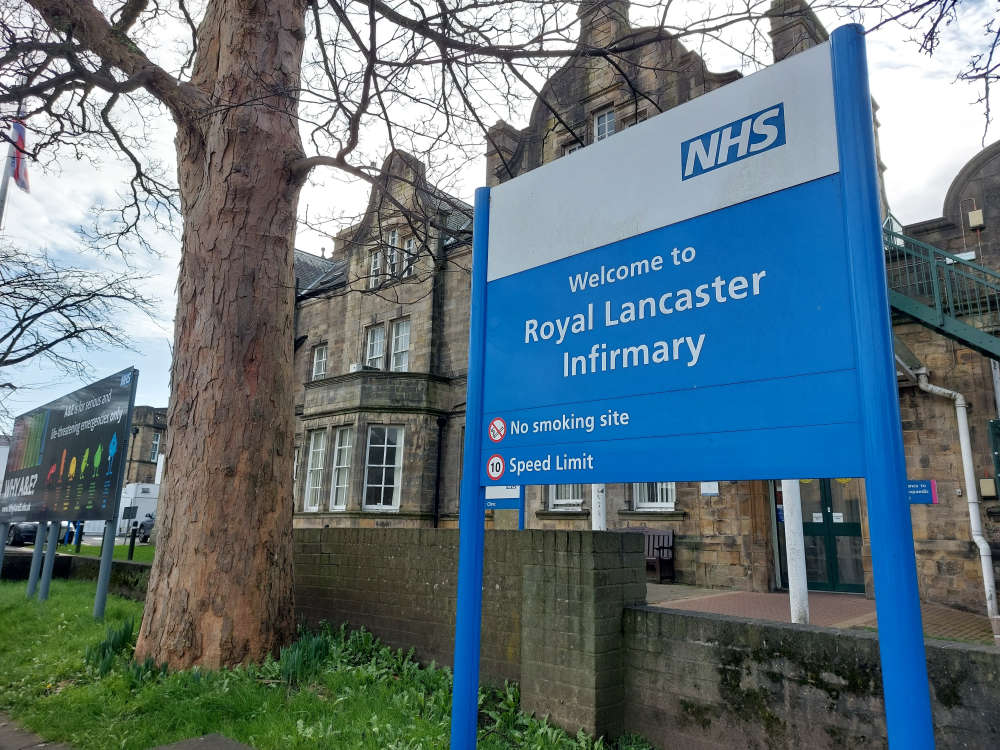 Health watchdog report shows improvements to services at Royal Lancaster Infirmary
Health watchdog report shows improvements to services at Royal Lancaster Infirmary
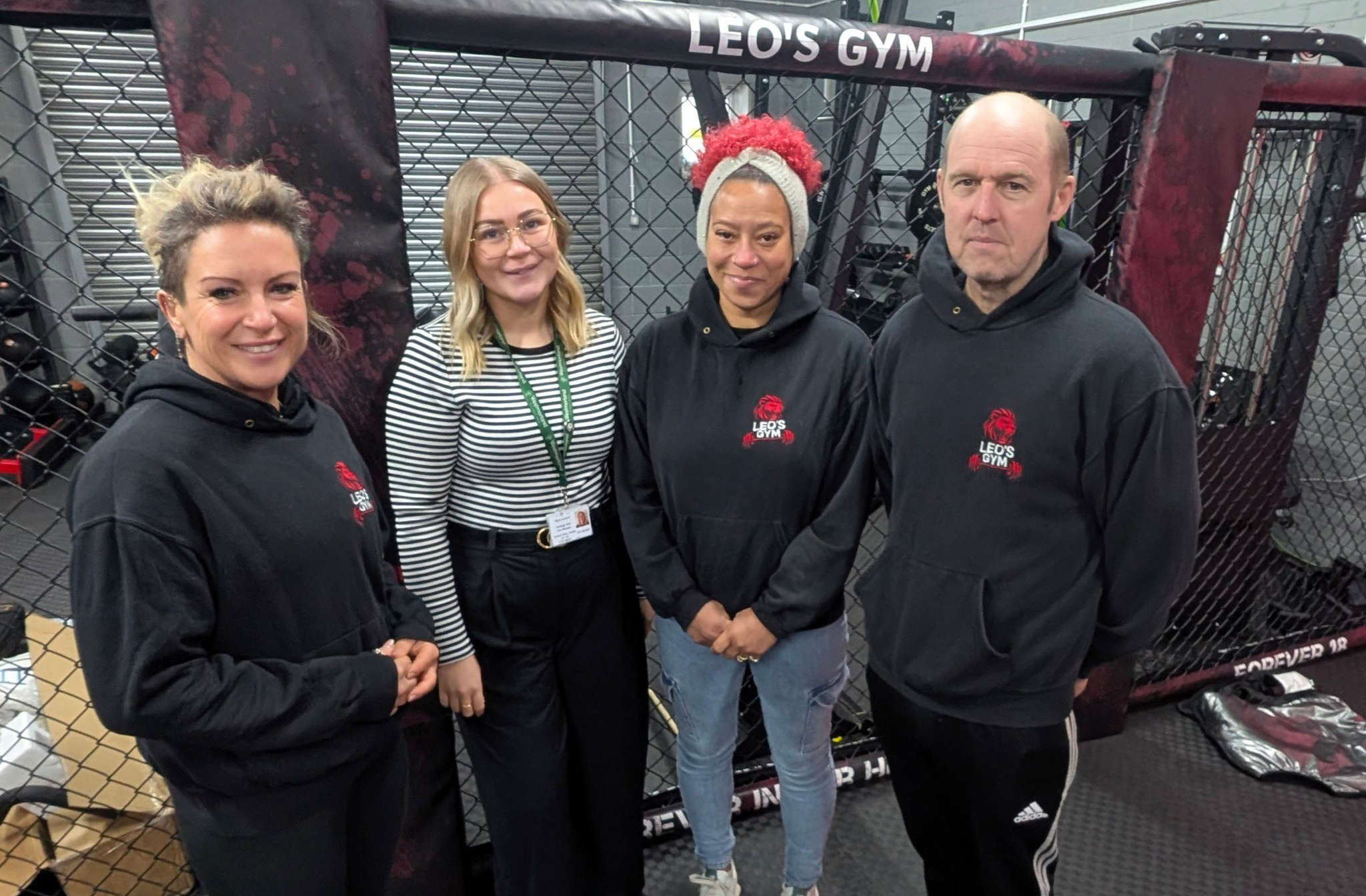 LISTEN: How Leo's Gym is making a difference in memory of young Morecambe boxer
LISTEN: How Leo's Gym is making a difference in memory of young Morecambe boxer
 LISTEN: Lancaster set to celebrate Chinese New Year
LISTEN: Lancaster set to celebrate Chinese New Year
 Lancaster’s Vue Cinema under new ownership
Lancaster’s Vue Cinema under new ownership









